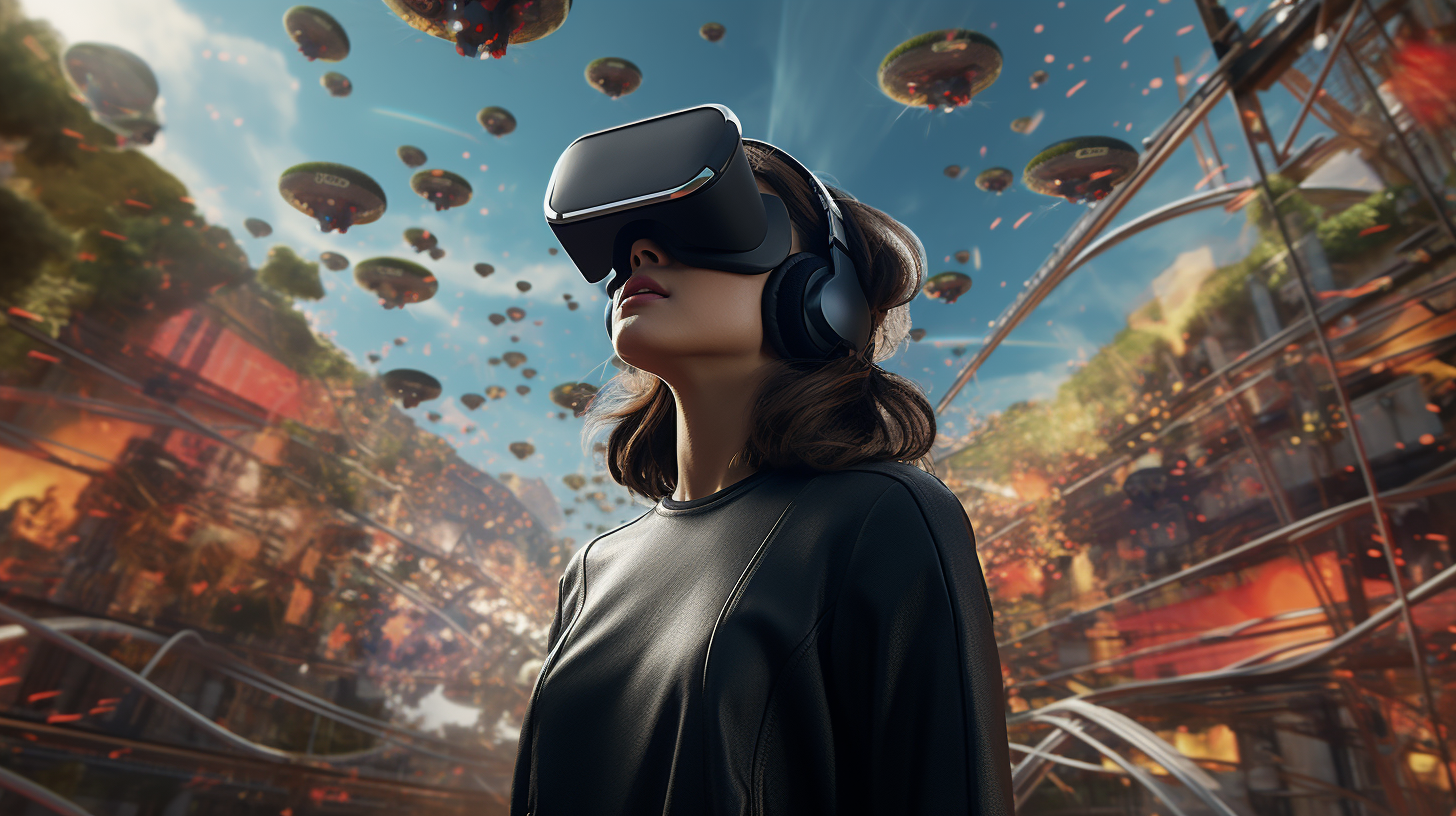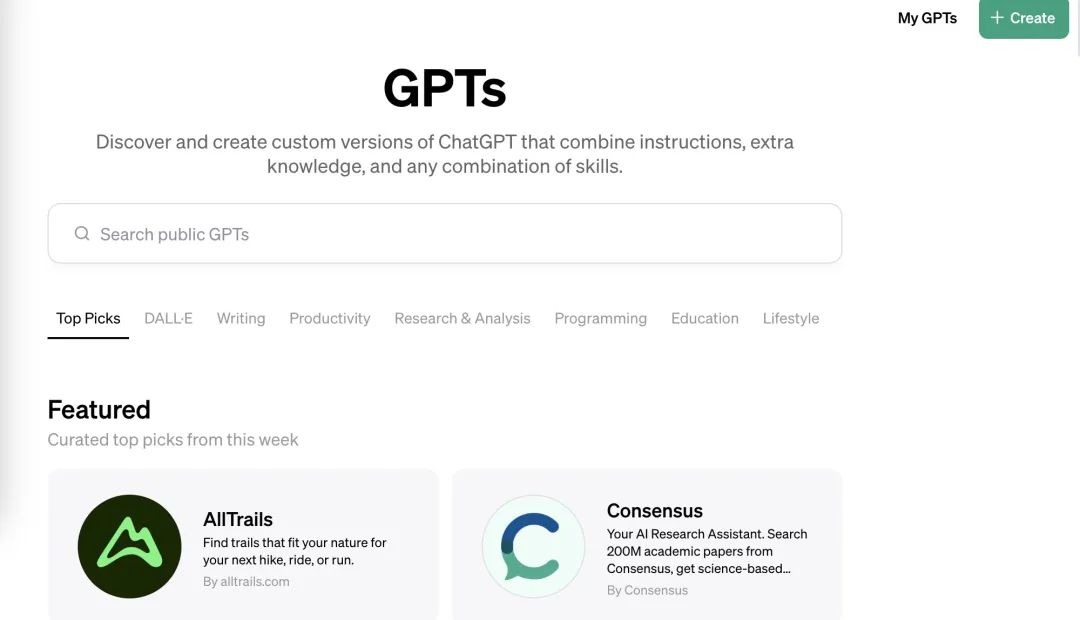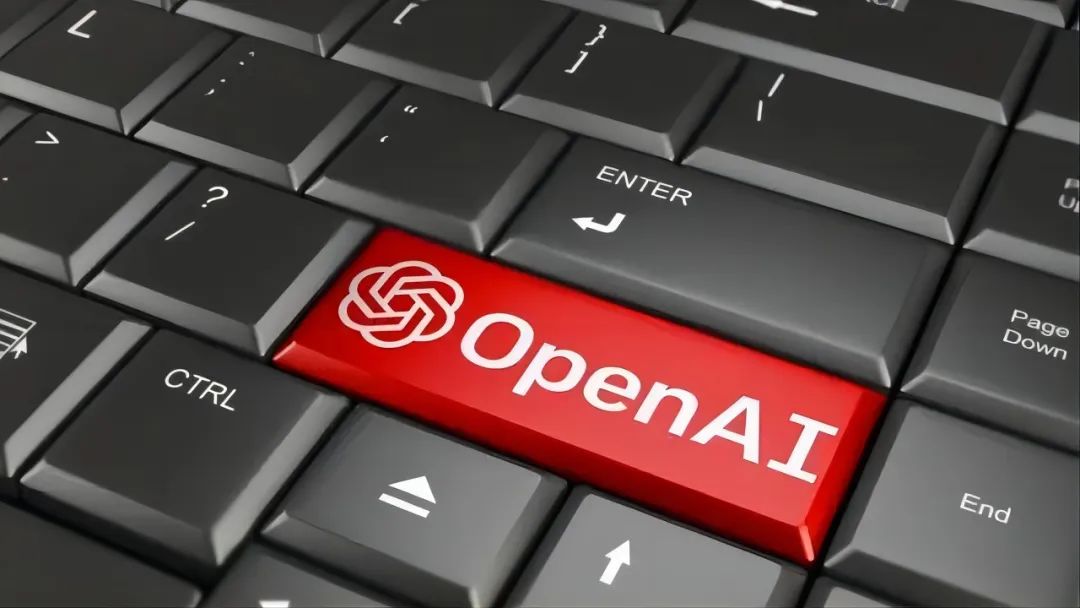Source: Silicon Lab
Author: Shan Walnut

Image Source: Generated by Wujie AI
Some are still hesitating to embrace AI, while others are already making money secretly with GPTs.
This is the general opinion on the internet after OpenAI finally launched GPT Store. After all, when this plan was announced, it was compared to Apple's Apple Store by the outside world. OpenAI founder Sam Altman also bluntly stated, "Everyone can make money."
However, after one day of going online, its reputation has shown a clear polarization. After researching GPT Store, "Silicon Lab" has come to two conclusions:
First, OpenAI has great ambitions, but is also impatient.
Second, don't compare GPT Store with App Store.

Why does OpenAI want to create GPT Store?
Understanding this can be seen from both short-term and long-term perspectives.
In the short term, it is for the sake of competing for traffic and improving valuation performance. From the form of GPT Store, it combines "search + recommendation," which is currently semi-open and semi-decentralized. On one hand, users can directly search for relevant GPTs in the search box, and the more users use it, the easier it is to get official recommendations. On the other hand, the names of the GPTs are followed by the developers' websites and can be directly accessed. Therefore, for developers, GPT Store itself is an important traffic entry point.

One form of GPT Store is a search engine entry
An AI entrepreneur has already tried to launch multiple language-related GPTs in GPT Store. His direct feeling is that OpenAI's current traffic advantage can help him and his team quickly attract a wave of user visits. "Because traditional promotion is a very difficult thing."
On the other hand, from the perspective of real needs, OpenAI is currently at a critical stage of financing. We believe that the launch of GPT Store is also to improve its valuation performance and let the market understand its new commercialization path. Earlier, according to foreign media reports, OpenAI is raising new funds with a valuation of $100 billion.
But in the long run, OpenAI's ambitions may be far greater than this.
On one hand, GPT Store carries the ambition of OpenAI's super entrance. Currently, GPT Store is still in the early stage of traffic dividends, and the trend of decentralization is more obvious, because it is conducive to building a developer and content ecosystem. With more users of GPTs, the traffic will also become more concentrated, from decentralization to centralization, challenging traditional search engines.
On the other hand, some also believe that creating GPT Store can be understood as OpenAI's big move for the AI era. One of the co-founders of OpenAI, and former AI director of Tesla, Andrej Karpathy, once compared large language models to the "emerging AI operating system" of Windows, Mac OS, and Linux.
Following this logic, the GPTs in OpenAI's GPT Store can be seen as apps of the AI era operating system. Referring to the history of past operating system winners taking all, if the ecosystem of GPT Store forms a scale effect, then OpenAI's moat will be very difficult to cross.

Currently, GPT Store is still in the early stages of development, and due to the traffic dividend, it has also attracted a group of gold diggers. However, if developers (or early users) want to quickly make money or rely on a certain GPT to become famous, this possibility exists, but it should not be overestimated.
Because GPT Store and App Store are too different to be simply compared.
One underlying logic is that under GPT Store, OpenAI actually wants to become an intermediary and make money by collecting taxes, which is a relatively perfect business model, after all, Apple's performance speaks for itself. However, the premise is that if OpenAI wants to become a technical market, it must meet two basic conditions:
First, OpenAI must establish quality standards and guidelines to maintain the products available in this market, ensuring that users can see better products here.
Second, it must provide stable underlying interfaces and development toolkits based on this to suppliers (the developers and creators of these GPTs). For example, like Apple's iOS SDK, it provides a good mobile development platform for developers, and Apple's own security review ensures the security of user privacy.
In this cycle, a relatively high-quality store can ensure user experience, make developers profitable, and ensure the stability of the ecosystem.
But based on the above two basic conditions, the moat of GPT Store is obviously not stable.
First, although OpenAI has provided a guide on how to create an effective custom GPT, from the current homogenized GPTs in the store, the threshold is not high, and a large number of C-end users' GPTs based on their personalized needs are flooding in. These GPTs are indeed interesting, but it is difficult for them to become high-frequency usage.

Native iOS developer Pen Magent believes that OpenAI could have proposed a guide for "patterns + workflows," but it is currently not seen. "No documents, no tutorials, no patterns, no videos on creating GPTs, you only have language."
Second, for developers, although GPT Store is a traffic entry, it is not a one-size-fits-all business. Some AI entrepreneurs believe that they can currently use GPT Store to quickly develop AI product MVPs (MVP refers to: minimum viable product) in a situation of limited resources, helping to validate the market and guide existing products.
After all, the official GPT recommendation path is relatively single, there is no user comments and rating function, and some have pointed out that similar GPTs SEO can be done through "ranking and volume brushing."
For OpenAI at present, there are both opportunities and challenges. The next most important thing to do is actually to improve its own operational capabilities, such as protecting the intellectual property rights of GPTs. For many developers, it may be more important to use GPTs to test their own capabilities and make more vertical explorations.
Reference:
Pen Magent: "Where is OpenAI Going With Its GPT Store"
免责声明:本文章仅代表作者个人观点,不代表本平台的立场和观点。本文章仅供信息分享,不构成对任何人的任何投资建议。用户与作者之间的任何争议,与本平台无关。如网页中刊载的文章或图片涉及侵权,请提供相关的权利证明和身份证明发送邮件到support@aicoin.com,本平台相关工作人员将会进行核查。




